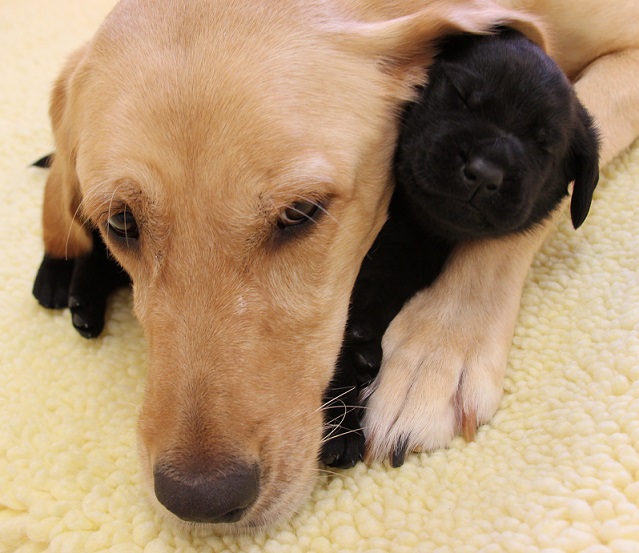Podcast: Play in new window

BOB HIRSHON (host):
Overparenting…puppies. I’m Bob Hirshon and this is Science Update.
So-called “helicopter parents” are accused of stifling their children’s independence by doing too much for them. Now, a similar phenomenon may explain why some potential guide dogs fail to successfully graduate from their training. University of Pennsylvania animal behaviorist Emily Bray followed 98 puppies from birth.
EMILY BRAY (University of Pennsylvania, now at University of Arizona):
We found that the amount of mothering really mattered. And somewhat surprisingly, the mothers who were more hands-on with their puppies and were around more – those puppies when they grew up were actually less likely to become guide dogs.
HIRSHON:
But more self-reliant puppies grew up to be independent, ignore distractions, and tolerate the unpredictable – qualities that characterize successful guide dogs. She and her colleagues write in the Proceedings of the National Academy of Sciences that they don’t yet know what accounts for the parenting differences. I’m Bob Hirshon, for AAAS, the science society.
Story by Susanne Bard
